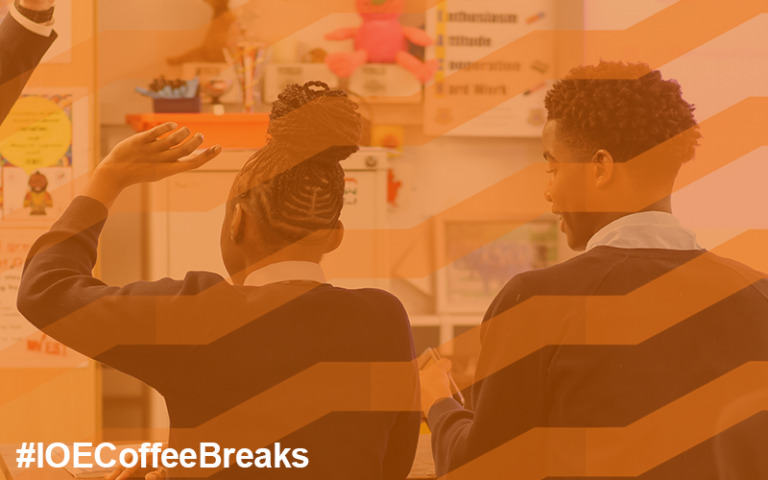Assessment for the ‘class of 2020’ – and 2021
18 May 2020, 3:30 pm–4:10 pm

With exams disrupted by the Covid-19 pandemic, this online discussion sizes up the task of securing robust and fair assessment for the class of 2020, and possibly future years.
This event is free.
Event Information
Open to
- All
Availability
- Yes
Cost
- Free
Organiser
-
Kate Thomas
Watch the discussion here
Listen again
On the face of it, the Covid-19 outbreak has prompted a sharp reversal in that trend, at least for the ‘class of 2020’. Meanwhile, practical assessment for vocational and technical qualifications has been equally disrupted by the current public health measures.
The task of securing robust and fair assessment is a considerable one under any circumstances. We wanted to take stock of the different approach and procedures for awarding qualifications this time around – the issues they raise and what we might learn for future years.
Issues for discussion include:
- Why policy had previously moved away from teacher assessment.
- The pros and cons of teacher assessment and how it is being deployed this year.
- The specific issues facing vocational and technical awarding.
- Considerations for the 2021 cohort of exam takers.
- What might – or should – change for assessment in future years as a result of the Covid-19 disruptions.
Links
About the Speakers
Dr Sandra Leaton Gray (Chair)
Associate Professor of Education at UCL Institute of Education (IOE)
Sandra is an applied sociology of education specialist and has published extensively on issues of education professionalism, professional training, education policy, the knowledge economy, curriculum, biometrics and children, artificial intelligence in education and conceptions of time in education.
She has served as an education consultant and advisor to national and international organisations including the UK Government, the European Commission, the International Baccalaureate Organisation and the UK's Royal Colleges of Medicine. Sandy is currently directing the My Life Online research project, investigating young people and their social media algorithms.
Prior to joining the IOE, she held posts at the Universities of East Anglia and Cambridge. Her recent publications include Invisibly blighted: the digital erosion of childhood (2017, with Andy Phippen) and Curriculum Reform in the European Schools: Towards a 21st Century Vision (2018, with David Scott and Peeter Mehisto).
More about Dr Sandra Leaton Gray (Chair)Dr Tina Isaacs
Honorary Associate Professor in Educational Assessment at UCL Institute of Education (IOE)
Tina's research interests span curriculum and assessment, and her recent projects include an exploration of instructional systems around the world. Formerly, she also directed the IOE’s Education (Assessment) MA and led its Centre for Post-14 Research and Innovation.
Much of her career has been spent with national agencies in the field of assessment. From the National Council for Vocational Qualifications Tina joined the Qualifications and Curriculum Authority (QCA), where she was involved in the QCA review of Curriculum 2000, and led a number of teams, including for Arts and Humanities, Assessment Development and Secondary Curriculum (Key Stage 3 Review), Curriculum Standards, and 14-19 Policy. She went on to join Ofqual as Head of 14-19 Regulation.
Tina is co-author of Key Concepts in Educational Assessment (2013), Examination standards: How measures and meanings differ around the world (2018) and the 2019 Ofqual report Examination Reform: Impact of Linear and Modular Examinations at GCSE.
More about Dr Tina IsaacsDr Mary Richardson
Associate Professor of Education at UCL Institute of Education (IOE)
Mary's current areas of research include the way that assessment is discussed in public settings, particularly online, and how these discourses are eroding trust in education and assessment, and the impact of new technologies on assessment practice. Mary has a more general interest in how philosophy of education and philosophical discourses can help us improve assessment practice in all its forms.
Alongside, Mary directs the IOE’s Education (Assessment) MA, is a member of the Research Advisory Group for Qualification Wales, providing guidance and feedback on new research initiatives and qualifications development, and sits on the Publications Board for the Association of Assessment and Evaluation (Europe) and on the Council for the Philosophy of Education Society for Great Britain.
Prior to joining the IOE, she held posts at the University of Roehampton and the awarding body AQA. As Senior Research Officer at the AQA Mary conducted national studies relating to school-based examinations, testing regimes in schools and the impact of testing on children.
More about Dr Mary Richardson Close
Close

